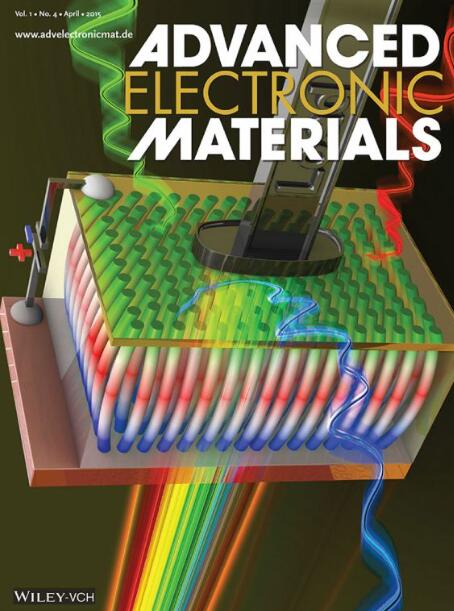Hardware Implementation of Bayesian Decision‐Making with Memristors
IF 5.3
2区 材料科学
Q2 MATERIALS SCIENCE, MULTIDISCIPLINARY
引用次数: 0
Abstract
Brains perform decision‐making by Bayes theorem – events are quantified as probabilities and based on probability rules, computed to render the decisions. Learning from this, Bayes theorem may be applied to enable efficient user–scene interactions. However, given the probabilistic nature, implementing Bayes theorem with the conventional deterministic computing hardware can incur excessive computational cost and decision latency. Though challenging, here a probabilistic computing approach is presented based on memristors to implement Bayes theorem. Memristors are integrated with Boolean logic circuits and, by exploiting the volatile stochastic switching of the memristors, realize probabilistic Boolean logic operations, key for Bayes theorem hardware implementation. To empirically validate the efficacy of the hardware Bayes theorem in enabling user–scene interactions, lightweight Bayesian inference and fusion operators are designed using the probabilistic logic circuits and apply the operators in road scene parsing for self‐driving, including route planning and obstacle detection. The results show the operators can achieve reliable decisions in less than 0.4 ms (or equivalently 2500 fps), outperforming human decision‐making and the existing driving assistance systems.忆阻器贝叶斯决策的硬件实现
大脑根据贝叶斯定理进行决策——事件被量化为概率,并基于概率规则,计算得出决策。从中学习,贝叶斯定理可以应用于实现高效的用户-场景交互。然而,考虑到贝叶斯定理的概率性质,在传统的确定性计算硬件上实现贝叶斯定理会导致过高的计算成本和决策延迟。尽管具有挑战性,但本文提出了一种基于忆阻器的概率计算方法来实现贝叶斯定理。记忆电阻器与布尔逻辑电路集成,利用记忆电阻器的易失性随机开关,实现概率布尔逻辑运算,这是贝叶斯定理硬件实现的关键。为了从经验上验证硬件贝叶斯定理在实现用户场景交互方面的有效性,使用概率逻辑电路设计了轻量级贝叶斯推理和融合算子,并将算子应用于自动驾驶的道路场景解析,包括路线规划和障碍物检测。结果表明,操作员可以在不到0.4 ms(相当于2500 fps)的时间内做出可靠的决策,优于人类决策和现有的驾驶辅助系统。
本文章由计算机程序翻译,如有差异,请以英文原文为准。
求助全文
约1分钟内获得全文
求助全文
来源期刊

Advanced Electronic Materials
NANOSCIENCE & NANOTECHNOLOGYMATERIALS SCIE-MATERIALS SCIENCE, MULTIDISCIPLINARY
CiteScore
11.00
自引率
3.20%
发文量
433
期刊介绍:
Advanced Electronic Materials is an interdisciplinary forum for peer-reviewed, high-quality, high-impact research in the fields of materials science, physics, and engineering of electronic and magnetic materials. It includes research on physics and physical properties of electronic and magnetic materials, spintronics, electronics, device physics and engineering, micro- and nano-electromechanical systems, and organic electronics, in addition to fundamental research.
 求助内容:
求助内容: 应助结果提醒方式:
应助结果提醒方式:


